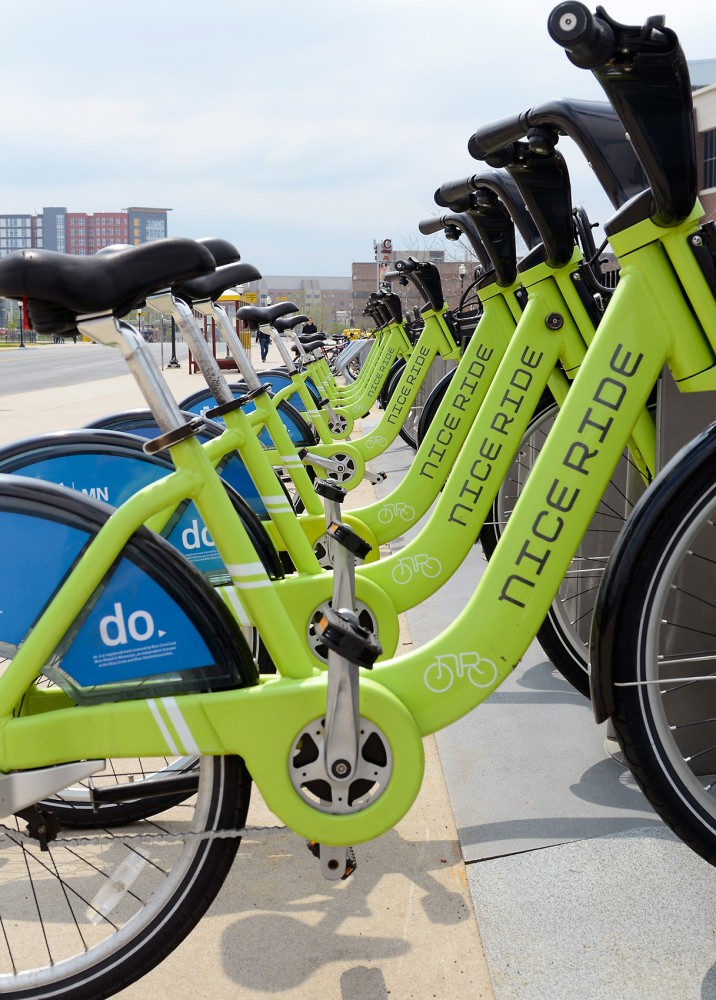With advancing technology and widely available car-sharing services, getting around without your own car is becoming a reality for big-city dwellers.
The need for personal vehicles is dwindling with the rise of self-driving cars and sharing services — such as zipcar, Hourcar and car2go — according to a University of Minnesota Center for Transportation Studies report published this month.
The study was also sponsored by the Minnesota Department of Transportation and the Minnesota Local Road Research Board.
“Car-sharing definitely has grown in popularity,” said Hourcar Program Manager Megan Hansen. “There are a lot more options now then there were a few years ago.”
The report also says that the growth of sharing services will yield smaller models of cars and increase urban demand. Someday, according to the report, cities could designate streets for dropping off and picking up cars rather than for parking.
With fewer cars parked on the street or sitting in parking garages, cities will have less congestion and more space, said Nice Ride Minnesota Executive Director Bill Dossett.
Car-sharing service users pay per trip, eschewing usual expenses like monthly loans or maintenance, said David Levinson, a civil engineering professor and the study’s principal investigator.
The report found that autonomous vehicles are safer as they don’t tire the way human drivers can and increase mobility for children and people with disabilities who may have had trouble getting around otherwise.
The report estimated that within 20 years, self-driving vehicles will become commonplace.
“We won’t have [a self-driving vehicle] tomorrow, but we could have it in 10 years,” Levinson said.
He said with car-sharing, a person can go wherever they want whenever they want, though it’s often expensive. Increased adoption of vehicle automation will result in cheaper transportation costs for people, he said.
Paying drivers accounts for most of the fees of ride-sharing services, Levinson said.
Still, owning a car may be beneficial depending on where the user lives, Levinson said. If someone lives on a farm or in a suburb, they may have to wait up to 15 minutes for a car to pick them up.
“There’s going to be different places where different economic models work better,” he said. “Right now, almost nobody gives up their car to rely solely on taxis or Car2go except in big cities.”
Still, attitudes about car ownership, especially among millenials, are changing, Hansen said.
“It’s going to take time. We are still very much a car-centric culture, but car-sharing has been growing pretty rapidly around the world, and I think that will continue,” she said.


